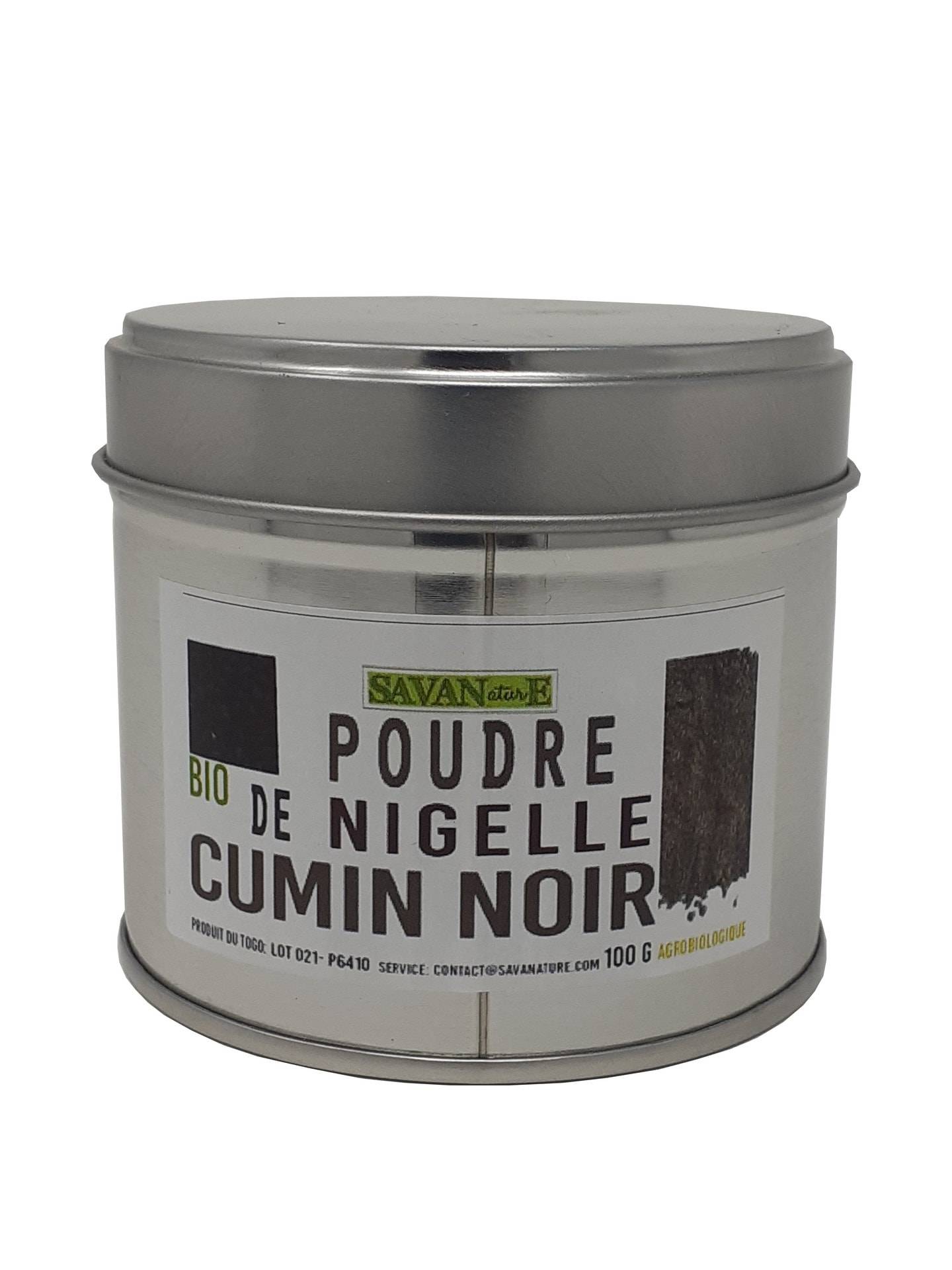BLACK CUMIN
Scientific name : Nigella sativa Common names: black cumin, cultivated black cumin
English names : nigella, black cumin Botanical classification: family Ranunculaceae
Forms and preparations: seeds, oil, capsules (food supplements), creams, herbal teas. Medicinal properties of black cumin
Internal use: Excellent food supplement, dedicated to internal balance.
Numerous healing properties: digestive, diuretic, stimulant, antioxidant, galactogenic (activates milk secretion in breast-feeding women), analgesic and anti-allergic. Stimulates the immune system, lowers bad cholesterol and prevents high blood pressure.
Regular consumption of black cumin can reduce blood sugar levels and insulin resistance, making it an effective remedy for avoiding type 2 diabetes.
External use: Reduces headaches, dizziness and joint pain by local application or massage.
Treats colds, toothache (as a mouthwash) and skin problems (psoriasis, acne, eczema, burns). Treats acne or skin problems and improves the complexion.
Black cumin's anti-infectious action helps to treat respiratory, biliary and urinary problems. Its draining effect helps eliminate toxins in the intestines and lungs. In this way, it strengthens and protects the respiratory tract against all kinds of external aggression.
Other proven therapeutic indications: Black cumin contains numerous natural components (vitamins, enzymes, trace elements and plant-based omega-6 and omega-3) whose health benefits have been widely demonstrated by science for over forty years. Working in synergy with each other, these components boost the immune system and prevent infections and allergies. Black cumin oil is an ideal dietary supplement for boosting energy during the change of season. Taking two three-week cures of black cumin oil each year will help boost your immune system and improve your general well-being.
History of the use of black cumin in phytotherapy: The curative properties of black cumin have been known for a very long time. The earliest records of its cultivation and use date back to ancient Egypt. Black cumin oil is said to have been found in Tutankhamen's tomb. In Arabic, black cumin is known as " Habbatul baraka " meaning "seeds of blessing". It is traditionally found in the Middle East, Africa and Asia, where it is used for its astonishing ability to heal a wide range of diseases, benefits which have been validated by biomedical literature. More than 450 published studies have referred to it since 1964. In other words, modern science has confirmed the beneficial effects of black cumin seed.
Botanical description of black cumin: The cultivated black cumin (Nigella sativa) is an annual herbaceous plant of the buttercup family, native to Eurasia. The plant can be recognised by its upright stem, which can reach 60 cm in height, its leaves divided into short strips and its flowers with 5 or 6 petals. The petals range in colour from blue to pink to white. Black cumin flowers in June and July. It is grown mainly in Mediterranean regions, Western Asia, Saudi Arabia, Sudan and Ethiopia.
Composition of black cumin. Parts used: Black cumin seeds are used in phytotherapy. Black cumin oil is obtained by cold pressing the seeds.
Active ingredients: Cultivated black cumin seeds contain proteins, lipids, carbohydrates, amino acids and secondary metabolites, which are known to have pharmacological activity. Black cumin seeds have a high content of thymoquinone, thymohydroquinone, dithymoquinone, thymol and omega-3 and omega-6.
Use and dosage of black cumin: The form most commonly used in phytotherapy is black cumin oil, extracted from its seeds.
- For an adult: take 1 to 3 teaspoons, pure or with honey, milk or any other food, with a meal or 1 tablespoon in the evening at bedtime, for three-month courses.
- For children under 12, half a teaspoon a day is sufficient, while children over 12 can take 1 teaspoon a day.
- It's good to know that black cumin can be mixed with fruit juices, milk, water, olive oil and so on. For example, a mixture of one tablespoon of black cumin essential oil with yoghurt can be used to soothe diarrhoea.
- Externally, black cumin oil is generally used pure, applied locally several times a day. It can also be added to cosmetic products. Black cumin oil can also be added to boiling water and then inhaled. The crushed seeds can be used in poultices to treat certain skin problems.










Reviews
There are no reviews yet.